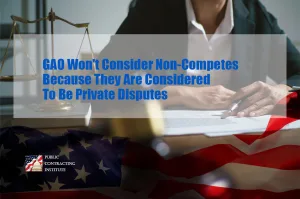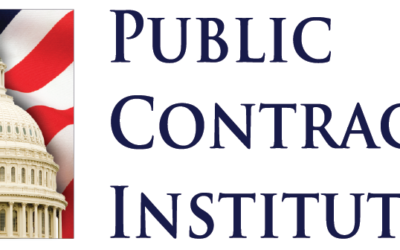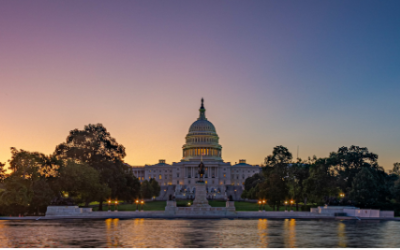Strativia, LLC protested award of a task order to Field Data Technology (“FDT”) under a Department of Agriculture solicitation for support of a Retailer Service Center for Supplemental Nutrition Assistant Program (“SNAP”) benefits. (SNAP was previously known as the “Food Stamps” program). Strativia LLC, B-421511 et al, June 14, 2023. Strativia protested that Agriculture unreasonably and separately evaluation offers under technical capability and past performance factors.
Government Accountability Office Jurisdiction
While the Government Accountability Office (“GAO) denied all of the multiple grounds of protest, this review only examines one ground which asserted that FDT’s proposed project manager and half of its proposed staff were not available to perform for FDT because they were incumbent staff who had signed non-compete agreements with Strativia. (A non-compete agreement prohibits employees from working for other companies within a geographic area for a certain period after the employee leaves a company.)
GAO noted that the question of whether personnel identified in an offer will actually perform under a subsequently awarded contract is generally a matter of contract administration which GAO does not review. GAO also noted that Strativia’s non-compete agreements were not, by themselves, sufficient to establish that FDT did not have a reasonable basis to expect to furnish its proposed project manager and staff for performance. The question here was whether the non-competes were enforceable, and this matter pertains to the obligations between private parties. The GAO stated tht it does not review private disputes such as the enforceability of non-compete agreements, and therefore cannot consider whether non-compete agreements render the awardee’s offer unacceptable in this case. Accordingly, GAO denied the protest.
Takeaway – Non-Competes Are An Issue of State Law
Each state has separate caselaw on non-competes. Some states permit enforcement, while others have found some of these agreements are too broad and not enforceable. Basing your protest on a non-compete is not likely to win at the GAO.
For other helpful suggestions on government contracting, visit:
Richard D. Lieberman’s FAR Consulting & Training at https://www.richarddlieberman.com/, and Mistakes in Government Contracting at https://richarddlieberman.wixsite.com/mistakes.




